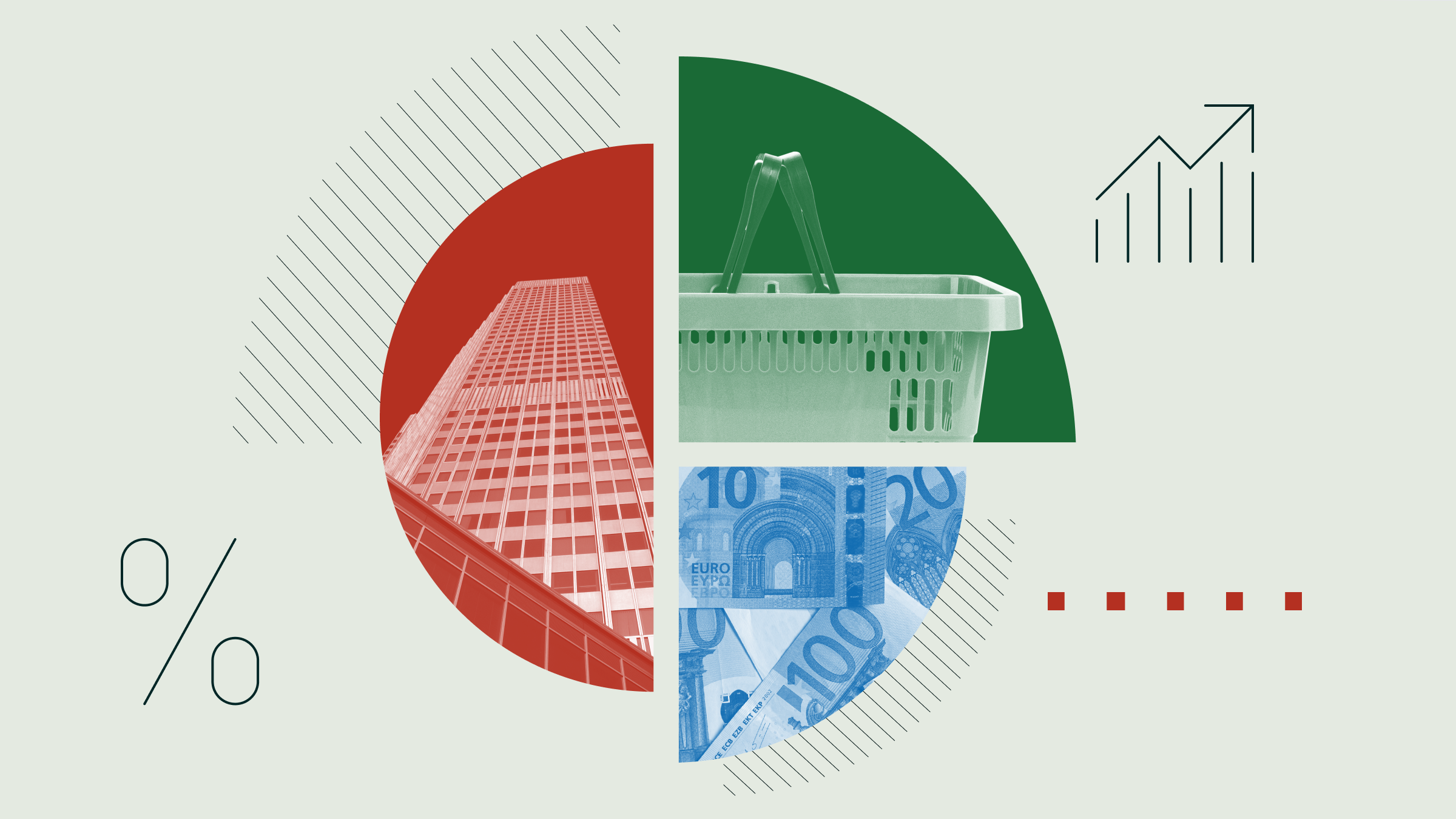Rolle im Portfolio
The iShares Euro Corporate Bond ex-Financials ETF offers investors exposure to the market of EUR-denominated investment grade corporate bonds issued by industrial and utility companies. Investors have been traditionally attracted to investment-grade corporate bonds for the expected steady income at higher vis-a-vis government bonds of similar rating and an assumed lower risk profile vis-a-vis equity. Within the corporate bond market, non-financial issuers usually carry lower risk than financials. This ETF tracks a Barclays Capital index which is very broad in its geographical scope, hence suiting investors looking to maximise diversification. The overwhelming majority of corporate debt issuers are located in developed economies.
The combination of yield pick-up and relative security vs. equity makes this ETF a candidate to work as a core building bloc of a fixed income investment portfolio, affording investors the means to enhancing overall returns. However, some investors may see the exclusion of financial corporate debt as curbing the yield-enhancing properties of the ETF.
The ETF can also be used as a tactical bet to overweight exposure to the non-financials segment of the corporate bond market. In this latter case, the likely investment objective would be one of risk-minimisation.
Investors in this ETF need to take into consideration the potential performance risks arising from inflationary pressures and their ultimate effect on monetary policy decisions. The fund is EUR-denominated and so the monitoring focus should be on European Central Bank policy action. The ETF tracks an index with average maturity of around five years and modified duration around 4%.
Fundamentale Analyse
Investor interest in the corporate bond market has grown substantially since the onset of the financial crisis. The search for either safety or yield away from government bond markets has pushed corporate bond yields down by a sizeable measure. Credit spreads (i.e. the yield difference to low-risk assets such as AAA-rated government bonds) have also compressed considerably; although they remain in positive terrain. Bonds issued by financial corporations usually have the highest credit spreads, followed by industrial and utility.
This increase in investor interest in corporate bonds has taken place against a backdrop of increased issuance. The impairment of traditional banking lending channels – particularly so in the Eurozone periphery – has forced corporations to increase the share of open-market funding to meet their investment and debt refinancing goals. So far, the increase in corporate bond demand has routinely outstripped that in supply; hence the downward trend in yields.
Although this ETF excludes financial corporate bonds, it is worth mentioning the efforts undertaken by the European Central Bank (ECB) to keep the inter-banking market rolling, as this has an impact on financing dynamics of all kind of corporations. Apart from conventional monetary policy measures (e.g. historically low interest rates); the ECB continues to provide ample liquidity to the Eurozone banking sector at very favourable conditions. Besides, within the framework of the Eurozone banking union, the ECB has become the supervisor of bank’s financial stability.
Full normalisation of bank lending in the Eurozone remains a somewhat distant prospect at this stage. Economic growth in the Eurozone is still below potential and the recovery is uneven across countries. This still makes commercial banks wary. However, the loan growth trend in the Eurozone, though still very weak, has come off the lows in 2014.
This general economic backdrop may allow for steady above-average corporate bond issuance for some time to come. In fact, with the ECB now embarking in quantitative easing until at least late 2016, government bond yields are likely to remain at exceptionally low levels; in turn further incentivising the “search for yield” in the likes of corporates.
However, in the longer run, assuming banking lending fully normalises, one would expect some measure of mean-reversion (e.g. lower issuance and higher yields / credit spreads) to kick in.
Indexkonstruktion
The Barclays Capital EUR Corporate Bond ex-Financials Index measures the performance of fixed-rate investment-grade EUR-denominated corporate bonds from industrial and utility corporations issued in the Eurobond and Eurozone markets irrespective of issuing country. Bonds with equity-type features as well as floating rate notes and private placements are excluded. There is no limit on the number of bonds eligible for the index. The distribution by sector is roughly 80% in industrials and 20% in utilities. Eligible bonds must have a minimum time to maturity of one year and a minimum outstanding of EUR 300mn. The relatively low minimum outstanding allows a broad geographical diversification in terms of issuers. There is no limit on the number of bonds eligible for the index. The distribution by sector is roughly 80% in industrials and 20% in utilities. Bonds are priced daily by Barclays Capital traders or third-party vendors. Analytical values are calculated daily on bid prices as of 16:15 London time. The index is rebalanced monthly on the last business day of the month. Income arising from coupon and redemptions is held in the index as non-invested cash until rebalancing when it is then reinvested in the index.
Fondskonstruktion
iShares uses physical replication to track the performance of the Barclays Capital EUR Corporate Bond ex-Financials index. This is a EUR-denominated ETF that distributes dividends on a semi-annual basis, with historical data showing a January - July payment pattern. iShares uses stratified sampling to construct the fund. The index is broken down into sections, each representing key risk factors (e.g. duration, currency, country, rating, sector). The managers then choose bonds included in the index that mimic the risk profile of each section. The aggregate result is a portfolio that represents the index’s overall risk profile, while allowing the ETF manager to avoid purchasing bonds that may suffer from illiquidity. According to our research, the extent of sampling for this ETF has tended to be very limited, with the ETF regularly holding a similar number of components as the index. iShares may engage in securities lending in order to optimise the ETF’s tracking performance. BlackRock acts as investment manager on behalf of iShares. The amount of securities that can be lent is capped to 50% of AUM per fund. The average on-loan for this ETF in 2014 was 7.6%. Lending operations are hedged by taking UCITS-approved collateral greater than the loan value and by revaluing loans and collateral on a daily basis. The collateral is held in a ringfenced account by a third party custodian. The degree of overcollateralisation is a function of the assets provided as collateral, but typically ranges from 102.5% to 112%. Lending revenue is split 62.5/38.5 between the ETF and BlackRock, respectively.
Gebühren
The fund’s total annual expense ratio (TER) is 0.20%. This is average for ETFs offering exposure to the EUR-denominated non-financial corporate bond market. Additional costs potentially borne by investors and not included in the TER include bid/offer spreads and brokerage fees when buy/sell orders are placed for ETF shares. There are also rebalancing costs whenever the index changes composition.
Alternativen
As we write, this iShares ETF is the clear market leader in this particular segment as measured in terms of assets under management (AUM). Alternatives from other providers lag iShares in AUM terms. Amongst these we find the Deka iBoxx EUR Liquid Non-Financials Diversified ETF (TER 0.20%; physical) and the Lyxor Euro Corporate Bond ex Financials ETF (TER 0.20%; swap based). These two ETFs track an index (iBoxx Euro Liquid Corporate Non Financials) which restricts its bond universe to just 20 components in a bid to capture the most liquid segment of the non-financial segment of the EUR-denominated corporate bond market.
Further down in the AUM scale we find the db x-trackers iBoxx EUR Liquid Corporate 100 Non-Financial ETF (TER 0.20%) and the Amundi Euro Corporate ex-Financials iBoxx ETF (TER 0.16%), both swap-based.
It is worth noting that investors seeking to restrict exposure to the shorter-end of the maturity spectrum can make use of the iShares Euro Corporate ex-Financials 1-5 ETF (TER 0.20%).

















